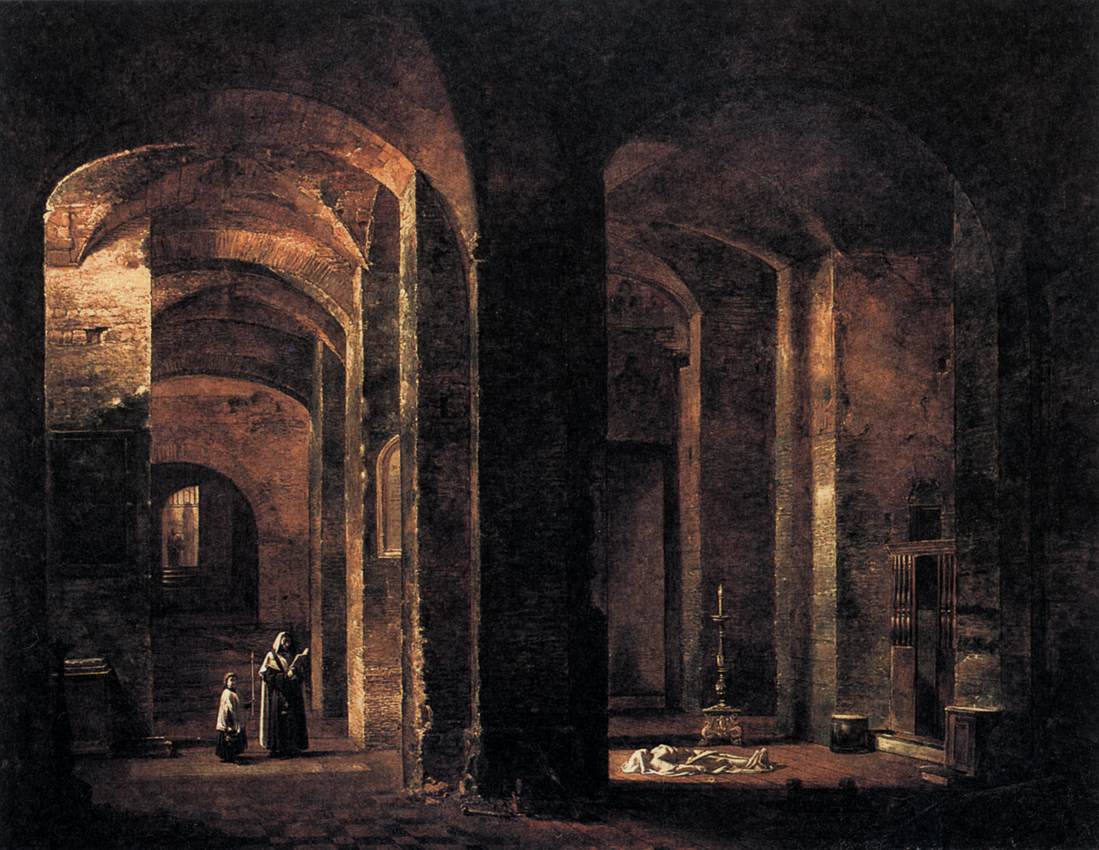Description
The painting Crypt of San Martino ai Monti, Rome by the artist François-Marius Granet is an impressive work of art that stands out for its artistic style, composition, and color. This artwork is an original size 126 x 159 cm oil on canvas depicting the crypt of the church of San Martino ai Monti in Rome.
Granet's artistic style is clearly visible in this painting, as the artist uses a soft and delicate brushwork technique to create a mystical and solemn atmosphere. The composition of the work is impressive, as Granet uses perspective to create depth and give the feeling that the viewer is inside the crypt.
Color is another interesting aspect of this painting. Granet uses a dark and earthy color palette to create a somber and mysterious atmosphere. However, he also uses splashes of bright color to bring out important details in the painting, such as the burning candles and the architectural details of the crypt.
The history of this painting is fascinating, as it was created by Granet in 1813 during his stay in Rome. The work was commissioned by Cardinal Joseph Fesch, uncle of Napoleon Bonaparte, and was exhibited in the Cardinal's Art Gallery in Rome. The painting was acquired by the Louvre Museum in 1828 and is currently in the museum's collection.
A little-known aspect of this painting is that Granet used live models to create the composition of the work. The models were monks who lived in the crypt of San Martino ai Monti and posed for Granet for several weeks while he worked on the painting.
In short, the painting Crypt of San Martino ai Monti, Rome by François-Marius Granet is an impressive work of art that stands out for its artistic style, composition, color, and fascinating history. This painting is a testament to Granet's talent and skill as an artist and remains one of the most important works in the Louvre Museum's collection.

